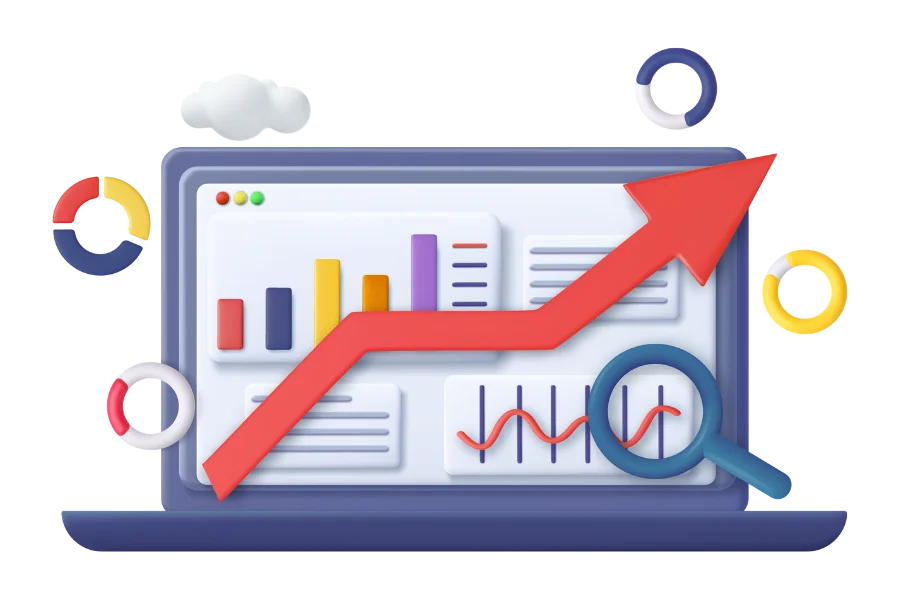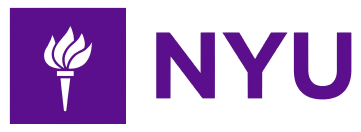Overview of a Master’s in Business Analytics
The Master of Science in Business Analytics (MSBA) is a cross-disciplinary graduate programme designed to equip students with the technical knowledge and business acumen needed to transform complex data into actionable insights. It combines rigorous academic foundations with real-world application, enabling graduates to support data-driven decision-making across sectors.
Most MSBA programmes offer a structured blend of core coursework, electives and experiential learning. The core curriculum typically covers topics such as:
- Data Structures and Algorithms
- Fundamentals of Database Technologies
- Machine Learning
- Mathematical and Statistical Foundations for Analytics
- Network Analytics
- Optimisation and Decision Models
- Statistics and Econometrics
- Data Visualisation
Students can also choose from a variety of electives or specialisation tracks tailored to industry-specific applications. These electives are designed to deepen expertise in analytical methods and strategic problem-solving within key functional areas. Popular options include:
- Advanced Machine Learning
- Causal Models for Business Analytics
- Data Management and Ethics
- Digital Marketing Analytics
- Energy Analytics
- Financial Analytics
- Healthcare and Medical Analytics
- Logistical and Supply Chain Analytics
- Retail and Marketing Analytics
- Text Analysis for Business
A central feature of most MSBA programmes is the capstone project, which provides an opportunity to solve real-world business challenges using live data. These projects, which range from a few weeks to a full year, enable students to apply theoretical knowledge to real-world industry problems in collaboration with corporate partners. Ultimately, an MSBA prepares graduates for analytics-driven roles across a broad range of industries. While specific job titles may vary by function or specialisation, typical roles held by MSBA graduates include:
- AI Research Scientist
- Analytics Associate
- Applied Scientist
- Data Science Analyst
- Data Scientist
- Machine Learning Engineer
- Product Analyst
- Product Data Scientist
- Quantitative Researcher
- Senior Analyst – Advanced Analytics and Insights
- Senior Data Scientist
By bridging the gap between data science and business strategy, the MSBA is an ideal qualification for those seeking to make a measurable impact through analytics in today’s data-centric economy.
Category | Details |
Core Subjects | Data Structures and Algorithms Fundamentals of Database Technologies Machine Learning Mathematical and Statistical Foundations for Analytics Network Analytics Optimisation and Decision Models Statistics and Econometrics Data Visualisation |
Specialisations / Electives | Advanced Machine Learning Causal Models for Business Analytics Data Management and Ethics Digital Marketing Analytics Energy Analytics Financial Analytics Healthcare and Medical Analytics Logistical and Supply Chain Analytics Retail and Marketing Analytics |
Capstone Project | Real-world business challenge using live data. Duration ranges from a few weeks to a full year. Often conducted in collaboration with corporate partners. |
Career Outcomes | AI Research Scientist Analytics Associate Applied Scientist Data Science Analyst Data Scientist Machine Learning Engineer Product Analyst Product Data Scientist Quantitative Researcher Senior Analyst Advanced Analytics and Insights Senior Data Scientist |
Want to pursue a Master’s in Business Analytics?
Benefits of studying a Master's in Business Analytics
The Master of Science in Business Analytics (MSBA) is a hybrid degree that equips students with technical expertise in data science as well as the business acumen needed to apply those skills in real-world contexts. This interdisciplinary foundation enables graduates to make meaningful contributions to organisational goals while advancing their professional development.
1) Career advancement and future readiness:
According to an Ernst & Young survey, 93 percent of companies reported actively increasing their investments in data and predictive analytics. As the digital economy continues to expand, organisations across industries are turning to data-driven strategies to understand customer behaviour and support decision-making. The trend is clear: companies that adopt analytics outperform those that do not, and demand for professionals with these capabilities continues to rise.
The United States Bureau of Labor Statistics projects a 35 percent increase in analytics-related roles through 2032, far outpacing the five percent average growth rate across other professions. This translates to an estimated annual need for 17,700 business and data analysts over the next decade. For professionals seeking to future-proof their careers, the MSBA offers timely and relevant preparation for a field that is becoming more structured and central to business success.
2) Specialisation across sectors:
An MSBA enables graduates to apply data analytics in a variety of contexts, whether optimising marketing campaigns or forecasting financial outcomes. The degree opens pathways in consulting, technology start-ups, non-profit organisations and multinational corporations. Regardless of the domain, business analytics professionals are in high demand for their ability to translate data into actionable strategies.
3) Industry experience through capstone projects:
Most MSBA programmes include a capstone or business consultancy project, which allows students to apply their learning to real-world challenges. These projects provide valuable exposure to live data, organisational objectives and decision-making environments. In recent years, several universities have reported that 17 to 21 percent of accepted job offers originated from companies affiliated with analytics capstone projects.
4) Real return on investment:
Given the strong market demand for analytics professionals, an MSBA often leads to a measurable increase in earning potential. According to the United States Bureau of Labor Statistics, the median annual wage for professionals in this field was USD 103,500. Across various American universities, recent MSBA graduates reported average salaries ranging from USD 89,233 to USD 127,250, with mean signing bonuses between USD 14,084 and USD 20,439.
In some cases, graduates experience a salary increase of 50 to 70 percent within one or two years of completing the programme. While salary data may vary based on voluntary reporting and institutional methodology, the return on investment for this degree remains both tangible and positive.
Benefit Area | Details |
Career advancement and future readiness | 93% of companies are increasing investment in analytics; 35% job growth projected through 2032; 17,700 analysts needed annually |
Specialisation across sectors | Skills applicable across marketing, finance, consulting, tech, non-profit and corporate sectors |
Industry experience through capstone projects | Capstone and consultancy projects provide hands-on experience; 17–21% of job offers linked to these collaborations |
Real return on investment | Median salary: USD 103,500; recent graduate salaries range from USD 89,233 to USD 127,250; 50–70% salary increase within 1–2 years |
Should you pursue a Master’s in Business Analytics?
How to choose the right Master's in Business Analytics programme
There is no shortage of Master’s in Business Analytics (MSBA) programmes globally. However, not all degrees carry equal weight, even at well-known institutions. A business analytics qualification awarded through a university’s central academic department may not hold the same value as one offered by its business school. While reputation matters, it is essential to evaluate the specific department or faculty responsible for delivering the programme. Paying a premium solely for a university’s name may not translate into meaningful returns unless the course structure and outcomes meet professional expectations.
1) Programme format and duration
Applicants should assess their current professional responsibilities, time availability and financial resources before deciding between full-time, part-time or online formats. Many institutions offer flexible learning options, allowing students to upskill while continuing to work. Course duration and intensity can vary, so it is advisable to weigh the trade-offs between shorter, intensive formats and longer, work-compatible structures.
2) Post-study work opportunities
For those seeking global exposure, post-study work rights are a key factor in choosing where to study.
In the US: International students on an F-1 visa with a non-STEM degree are eligible to stay for one year after graduation.
In the UK: Currently, international students completing undergraduate, master’s or doctoral degrees can remain in the UK for two years. However, as per the proposed 2025 immigration policies, international students completing undergraduate, postgraduate or doctoral programmes can work in the UK for 18 months.
3) Affordability and funding
Cost remains a significant consideration when selecting a programme and destination. Prospective applicants should assess tuition and living expenses against potential funding options. Many universities offer scholarships or sponsorship opportunities to qualified international students.
4) Faculty expertise and practical exposure
Strong academic departments are distinguished by their faculty, research focus and industry integration. Programmes that include capstone projects or business consultancy components offer students the opportunity to work on real-world challenges. Access to faculty mentorship also adds value, particularly for those looking to innovate in the field of data analysis.
5) Entry requirements and academic readiness
Given the quantitative nature of business analytics, most institutions require applicants to demonstrate proficiency in mathematics or statistics. This may be shown through prior coursework in subjects such as economics, calculus or quantitative methods. Checking programme prerequisites early can help determine eligibility and prepare for application requirements.
Factors to Consider | Details |
Programme format and duration | Evaluate full-time, part-time or online formats based on time, responsibilities and finances; course length varies by institution |
Post-study work opportunities | US: 1-year stay for non-STEM F-1 visa holders; UK: 1–2 years post-study work visa depending on latest immigration policies |
Affordability and funding | Compare tuition and living costs; explore scholarships and sponsorships available to international students |
Faculty expertise and practical exposure | Look for programmes with capstone or consultancy projects; consider faculty credentials and industry links |
Entry requirements and academic readiness | Check for prerequisites in maths, statistics, economics or calculus; assess quantitative preparation and eligibility early |
Need help selecting the right Master’s in Business Analytics programme?
How to apply for a Master’s in Business Analytics
Most universities in the US, Canada, the UK and Europe admit students in the fall intake, which typically begins between August and September. In Australia, the primary intake is in February, although some universities also offer a July start. A few institutions in the UK and Europe may offer additional intakes. All applications are submitted online, usually via the university’s official application portal. Common application requirements
Application Component | Details |
Resume | Academic and professional background, relevant technical skills, and long-term activities or projects |
Letters of Recommendation | 2–3 letters: academic references from faculty and professional references from supervisors, tailored to the applicant’s strengths |
Test Scores | Undergraduate transcripts, GRE/GMAT scores (if required), and proof of English proficiency (TOEFL/IELTS) |
Statement of Purpose (SOP) | Structured essay addressing academic background, professional goals, and alignment with the programme and faculty |
Personal Statement / Writing Sample | Optional; offers insight into personal values, motivations and writing skills; may be prompted separately |
Interview | Often conducted virtually; assesses motivation, understanding of the course and potential contributions to the university |
Want expert support for your MSBA application?
Countries that offer a Master's in Business Analytics
1) The US
The US remains a preferred destination for students pursuing a Master’s in Business Analytics, thanks to its rigorous curricula and diverse programme structures. Institutions cater to various stages of a student’s career, offering both flexible and full-time formats. For example, the University of Texas at Dallas allows students to customise their academic journey through its flexible programme, while the University of Texas at Austin offers a full-time, one-year course designed for recent graduates and a longer hybrid option for working professionals.
Students can typically choose from a broad selection of tracks and electives, including data engineering, cybersecurity analytics, enterprise system analytics, healthcare analytics, marketing analytics and social media analytics. Several US universities consistently rank among the best in the world for business analytics, including:
- Massachusetts Institute of Technology
- University of Pennsylvania
- University of Southern California
- Columbia University
- Carnegie Mellon University
- University of California, Los Angeles
- University of Texas at Dallas
2) The UK
Master’s in Business Analytics programmes in the UK are generally one-year, full-time courses that offer an intensive and immersive academic experience. These degrees emphasise quantitative and consultancy skills, often through a blend of examinations, group presentations and coursework. Students may choose to submit a dissertation—either in the form of applied research or as part of a consultancy project. Alternatively, some universities offer a business practice route, similar to a capstone experience in the US. Leading UK institutions offering competitive MSBA programmes include:
- Imperial College London
- University of Warwick
3) Canada
Canada offers approximately eight notable Master’s in Business Analytics programmes, with three universities featuring in international rankings. These programmes typically last between 12 and 20 months, although some can be completed in as few as 16 months. Canadian institutions place strong emphasis on practical training and industry engagement, which is reinforced by partnerships with employers in key business hubs such as Toronto, Vancouver and Montreal. Top institutions for business analytics in Canada include:
- University of British Columbia
- York University
- University of Alberta
4) Australia
Australian MSBA programmes are distinguished by their unique specialisations, including digital transformation and marketing technology. The curriculum is grounded in practical learning and industry collaboration, often supplemented with leadership modules that focus on developing communication and soft skills. Applications are typically accepted for two annual intakes—in February (spring) and July (fall). Prominent institutions offering business analytics programmes include:
- University of Sydney
- Australian National University
- University of Melbourne
5) Europe:
European universities offer some of the most diverse and customisable MSBA curricula, featuring electives and specialisations rarely found elsewhere, such as algorithms in control and digital footprint analysis. Similar to their UK counterparts, many European institutions offer both a dissertation and a consultancy-based pathway. The programmes also focus on holistic development through applied learning, leadership training and cross-functional collaboration. Highly regarded European institutions include:
- Erasmus Mundus (joint programmes)
- ESCP Business School
6) Asia-Pacific
Business analytics programmes across the Asia-Pacific region are increasingly recognised for their academic strength and alignment with global industry standards. These degrees support data-driven innovation across sectors and emphasise technical proficiency and professional growth. Leading universities in the region include:
- National University of Singapore
- Nanyang Technological University
7) India
In India, most business analytics qualifications are structured either as postgraduate diplomas or as part of an MBA specialisation. Although these programmes are not yet featured in international MSBA rankings, they are steadily evolving in response to global benchmarks. Indian institutions focus on experiential learning, interdisciplinary coursework and industry collaboration. These homegrown programmes are likely to gain international visibility in the coming years.
Wondering where to pursue a MSBA?
Top 6 universities for a Master's in Business Analytics
1) Massachusetts Institute of Technology (MIT)
MIT offers a STEM-designated Master of Business Analytics (MBAn) through its Sloan School of Management. This intensive programme combines rigorous academic coursework with immersive, real-world experience. One of its standout features is the Analytics Capstone Project—a seven-month engagement in which student teams are matched with global organisations, culminating in a full-time summer internship. This model not only sharpens practical skills but also includes a tuition offset of over USD 22,000. Students also participate in the Independent Activities Period, company pitches and Capstone matching preparations, all of which reinforce MIT’s mission of developing principled and innovative analytics leaders.
2) Carnegie Mellon University (CMU)
CMU offers a 9-month, STEM-designated Master of Science in Business Analytics (MSBA) designed for recent graduates eager to gain advanced data and business capabilities. The programme emphasises practical tools such as machine learning, R, and Python, and integrates an Analytics Capstone Project. Students benefit from individualised support from the university’s dedicated Master’s Career Center, enhancing their post-graduation opportunities.
3) The University of Manchester
This institution offers the MSc in Business Analytics, focusing on Operational Research and Risk Analysis. This programme balances theoretical knowledge with practical skills in data interpretation and decision sciences. Students work with advanced software tools, including Enterprise Guide and Enterprise Miner. The course is closely aligned with the Decision and Cognitive Sciences Research Centre, offering research exposure, collaboration opportunities and access to academic seminars.
4) HEC Montréal
In collaboration with École Polytechnique, HEC Montréal offers a comprehensive business analytics curriculum that bridges the gap between technology and management education. Students are immersed in real-world industry engagement through career fairs, expert-led workshops and conferences, which provide both practical insights and valuable networking opportunities with industry leaders.
5) The University of British Columbia (UBC)
UBC offers a 12-month MBAN that combines business fundamentals with advanced analytics training. The programme includes an 8–16 week internship and provides students with opportunities to participate in hackathons, case studies and applied projects. UBC also offers robust career development services, helping students translate their academic experience into career success.
6) The National University of Singapore (NUS)
NUS offers a multidisciplinary MSBA that blends academic rigour with experiential learning. Students complete five core courses designed to build a cross-disciplinary foundation, followed by a year-long capstone experience that includes seminars and a 3–6-month full-time project. The annual Business Analytics Centre Symposium fosters valuable industry connections, reinforcing NUS’s reputation as one of Asia’s most dynamic analytics programmes.
University | Programme Duration | Key Highlights |
Massachusetts Institute of Technology (MIT) | 12 months (7-month Capstone Project) | STEM-designated; 7-month Capstone Project with global firms; USD 22,000 tuition offset |
Carnegie Mellon University (CMU) | 9 months | STEM-designated; Capstone Project; strong R and Python training; personalised career mentorship |
University of Manchester | 12 months | Focus on operational research and risk analysis; use of Enterprise Guide/Miner; research collaboration |
HEC Montréal | 12-16 months (varies by cohort) | Jointly delivered by HEC Montréal and École Polytechnique; strong industry integration |
University of British Columbia (UBC) | 12 months | Internship (8-16 weeks); hackathons and case studies; career development support |
National University of Singapore (NUS) | 12 months | Cross-disciplinary foundation; year-long capstone with project and seminars; BACS industry symposium |
Want to select the right university for a Master’s in Business Analytics?
Is a Master's in Business Analytics worth it
Data has become an inescapable part of modern life. From content suggestions to product recommendations, even the act of reading this blog, our digital interactions are constantly being tracked, analysed, and optimised. In this data-centric world, organisations of all sizes are investing heavily in tools and talent to convert data into strategic insights. As a result, the demand for professionals who can interpret and act on these insights continues to rise.
The United States Bureau of Labor Statistics classifies many business analytics professionals under roles such as computer systems analysts and operations research analysts. The projected demand for operations research analysts alone is expected to grow by 25 percent, far exceeding the average across all professions.
While Master’s in Business Analytics (MSBA) programmes are gaining popularity, applicants often ask whether the degree is truly worth the time and financial commitment. The answer is a resounding yes.
From early-career professionals to senior-level executives, understanding how data works is becoming indispensable. The business analytics field evolves rapidly, with new tools, platforms and techniques emerging regularly. Pursuing a specialised MSBA helps professionals remain current and future-ready.
Beyond employment outcomes, a Master’s in Business Analytics provides an educational experience that blends data science with real-world business applications. Graduates benefit from:
A holistic skill set covering topics such as machine learning, statistical analysis, data visualisation and predictive modelling, alongside business fundamentals like operations, finance and human resource analytics.
Applied problem-solving abilities that translate directly to today’s complex and fast-paced work environments.
Versatility across industries, including finance, marketing, healthcare, technology and supply chain, where data-informed decision-making is increasingly critical.
In short, the convergence of business strategy and data analytics has made the MSBA a valuable credential for professionals looking to stay ahead in a competitive and evolving global economy.
Is an MSBA the right path for you?
Why choose The Red Pen to support your Master's in Business Analytics application
- The Postgraduate Admissions Team at The Red Pen supports applicants in identifying and applying to international master’s and doctoral programmes that align with their academic and professional objectives.
- US News & World Report’s strategic investment in The Red Pen enhances our ability to provide families with more informed counselling supported through globally recognised education data. With access to deeper insights, students can craft application strategies rooted in experience and research.
- As members of the Independent Educational Consultants Association (IECA), the team has access to the latest developments and trends across global universities.
- The Red Pen collaborates with applicants from a diverse range of academic and professional backgrounds, including finance, technology, general management, advertising, marketing, entrepreneurship, computer science, data science, analytics, sustainability, and social impact.
Learn More About The Red Pen
Read The Red Pen’s success stories












